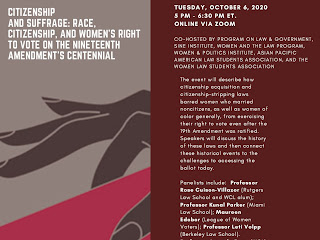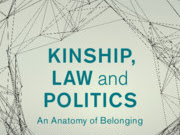The next meeting of the Washington History Seminar, on Monday, November 16 at 4:00 pm ET, will be devoted to Making the Woman Worker: Precarious Labor and the Fight for Global Standards, 1919-2019, by Eileen Boris, University of California, Santa Barbara. Sonya Michel, University of Maryland, will comment. Click here to register for the webinar or watch on the National History Center’s Facebook Page or the Wilson Center website.
Amid the unraveling of standard employment at century’s end, previously excluded home-based and domestic workers have pressed the International Labour Organization (ILO) for rights and recognition. By tracing the construction of the woman worker through ILO labor standards, leading feminist historian Eileen Boris probes paths to equality between those classified as men or women and between women globally, complicating the debate over protective labor legislation and questioning whether the new carework economy is just another name for the old dichotomy between “working women” and “mothers in the home.”
--Dan Ernst








